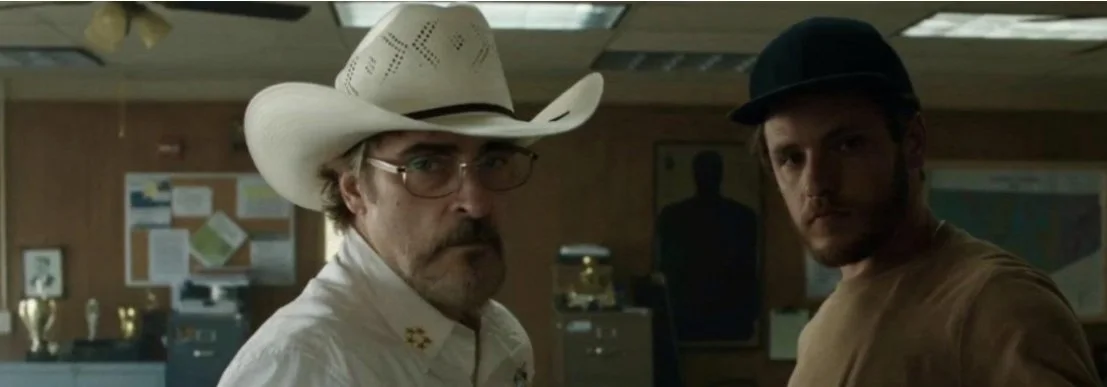“Doctor Sleep” is based on Stephen King’s 2013 sequel to his 1977 novel, “The Shining,” which of course served as the basis for Stanley Kubrick’s film. Did we really need a sequel 40 years later? After all, Kubrick’s horror classic is only one of the most influential movies of all time. It would have to take a heap of talent and ambition to prove the naysayers wrong and deliver a worthy companion to Kubrick’s masterpiece.
The intimidating challenge for a sequel was given to writer-director Mike Flanagan (“Hush”), who is unafraid to open “Doctor Sleep” with flashbacks of little Danny Torrance spinning his big wheel tricycle all around the hallways of the infamous Overlook Hotel. Referencing specific sets and shots, the film has Flanagan taking his time (the film clocks in at an overwrought 152 minutes) to set up all the action and characters he needs to make his opus. The result is disjointed and lacking in momentum. It just falls flat.
Set mainly in the present day, Danny Torrance (Ewan McGregor) is all grown up but still haunted by the events that transpired in the original movie. Do you blame him? He’s now an alcoholic drifter, still indebted with “the shine” ( a psychic ability), but decides to start anew in the little town of Frazier, New Hampshire, where a good samaritan by the name of Billy Freeman (Cliff Curtis) becomes his sponsor at A.A. and takes him in at his hospice.
Meanwhile, a teenage girl named Abra (Kyliegh Curran) who lives near Danny, starts to communicate with him via “the shine,” but her psychic abilities are so powerful that she is eventually noticed by True Knot, a sick and sadistic cult led by top hat-wearing psycho Rose (Rebecca Ferguson) who hunt people gifted with the shine, tying them up and consuming their dying essence (essentially the soul) to extend their own lives. A particularly gruesome sequence involving a boy they torture is not easy to watch.
Suffice to say, they want Abra, as her shine gifts are unlike any they have ever seen before. They travel all the way to New Hampshire so they can hunt her down, kill her and inhale her precious “essence,” since nabbing Abra may mean they live for hundreds of more years. What follows is a subtle game of cat and mouse as Abra and Danny try to stop True Knot in their tracks. A particularly memorable set-piece has Billy, Abra, and Danny taking on True Knot at an isolated trailer park. The shootout that ensues is nasty and unrelenting, a bout of incendiary violence that the rest of the movie cannot achieve again.
King has long wanted to distance himself from Kubrick’s film, which he openly despises. And yet, here we are, 40 years later, and the person who will no doubt come out of this sequel as the real loser is King himself. No surprise then, that the Maine-born novelist initially had his own hesitations in the hiring of Flanagan as director and even, at first, shut down the idea of featuring the Overlook Hotel in the film’s climactic showdown (the spooky residence is actually much less present in the novel). It took some convincing and, I’m sure, some concessions on the part of Flanagan and Warner Bros. to deal with King’s input. This behind-the-scenes drama of two visions clashing with each other results in “Doctor Sleep” being a schizoid and shapeless mess. This unwarranted sequel wants to satisfy both King and Kubrick fans, but ends up letting down both parties in the process.
The film’s 152-minute runtime is more than a half an hour too long. It’s laborious, directionless and has none of the intrigue Kubrick brought to his film.
The over-reliance on borrowed inspiration starts to eventually take its toll. It doesn’t help that Flanagan decides to mimic Kubrick’s style—even reshooting scenes from the original film with lookalike actors—in misguided continuous attempts to remind his audience that what they are watching is a sequel to the “The Shining.” It all amounts to a climactic showdown at, you guessed it, the Overlook Hotel, where Abra and Danny face-off against Rose. This is another opportunity for Flanagan to bust out all the familiar visuals from the original, like the blood-soaked elevator, the creepy twins, Lloyd the Bartender and, of course, Room 237.
Some much-needed inspiration does come in the form of a heartbeat-thumping score courtesy of the Newton Brothers, which adds some much needed atmospheric jump to the surroundings. Also, one must highlight Flanagan’s decision to slowly reveal his story, with nary a jump scare — a commendably risky proposition for mainstream audiences used to being spoonfed their thrills.
In the end, the shallow “Doctor Sleep” ends up believing it is deeper than it actually is. A more persistently firm creative vision would have helped it enormously, but the inconsistent tone renders it devoid of shine. [C]





